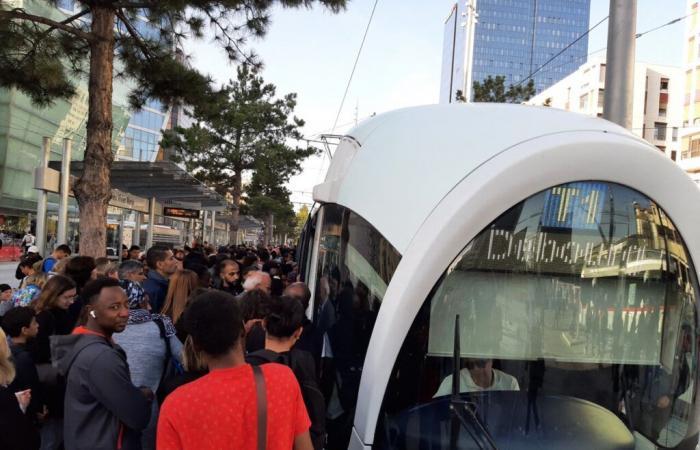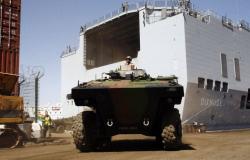Par
Nicolas Zaugra
Published on
Nov. 25, 2024 at 4:03 p.m.
See my news
Follow Lyon News
Mayhem on the TCL tram network in the metropolis of Lyon this Monday, November 25, 2024 due to the very violent winds from storm Bert currently underway in the department. The Rhône is on orange alert for violent winds until the end of the afternoon.
“Following violent winds, falling trees on overhead lines impact the operation of lines T2, T3, T5, T7 and Rhônexpress. Relay buses are set up. All TCL agents are mobilized,” announces the network.
Details of trams disrupted on the TCL network
The tramway T2 circulates “in two parts”. The line runs from Hôtel de Région Montrochet to Grange Blanche then from Hôtel de Ville-Bron to Saint-Priest Bel Air.
The stations from Ambroise Paré to Boutasse-Camille Rousset are no longer served in both directions of traffic. “We provide you with relay buses which serve the stations from Grange Blanche to Hotel de Ville de Bron”. The resumption of traffic is estimated at 8 p.m.
The T3 will not run before this Tuesday on part of the line. It only runs from Vaulx-en-Velin La Soie to Gare Part-Dieu. The Décines Center stations in Meyzieu les Panettes are no longer served. “We provide you with relay buses which serve the stations from La Soie to Meyzieu ZI”.
The resumption of traffic is estimated on Tuesday, November 26.
THE T5 and T7 trams no longer circulating at all this Monday. The first should resume at 8 p.m., the second this Tuesday.
A “major disruption” affects the tramway Rhônexpress between Lyon and Saint-Exupéry airport. It only runs from Saint Exupéry Airport to Meyzieu Zi Stations from Gare Part-Dieu to Vaulx-en-Velin La Soie are no longer served. The return to normal is announced for Tuesday.
Follow all the news from your favorite cities and media by subscribing to Mon Actu.






